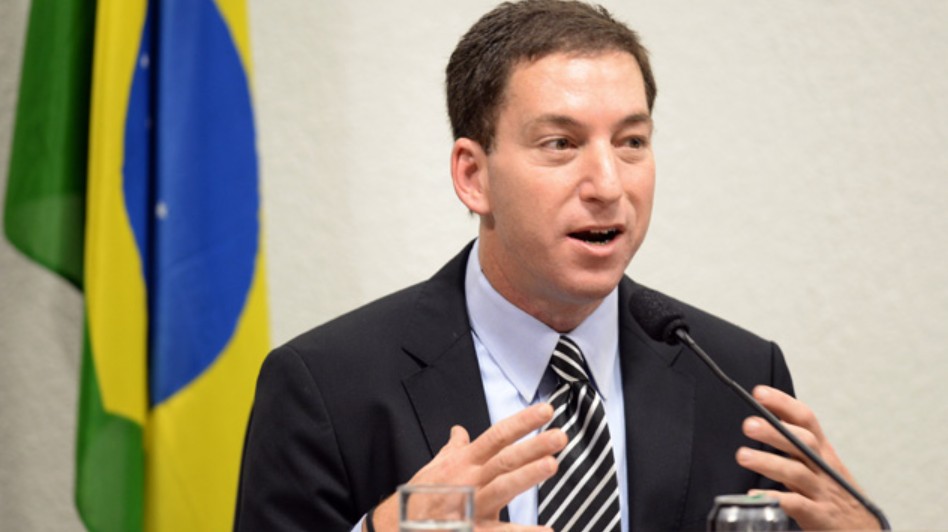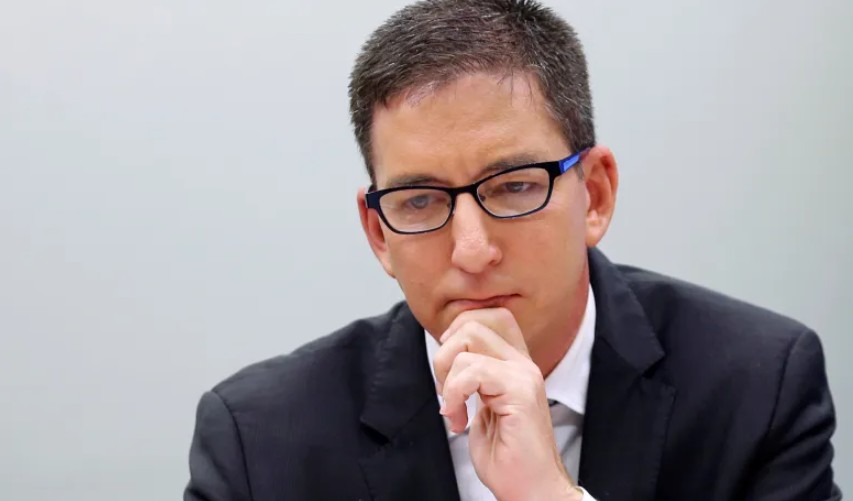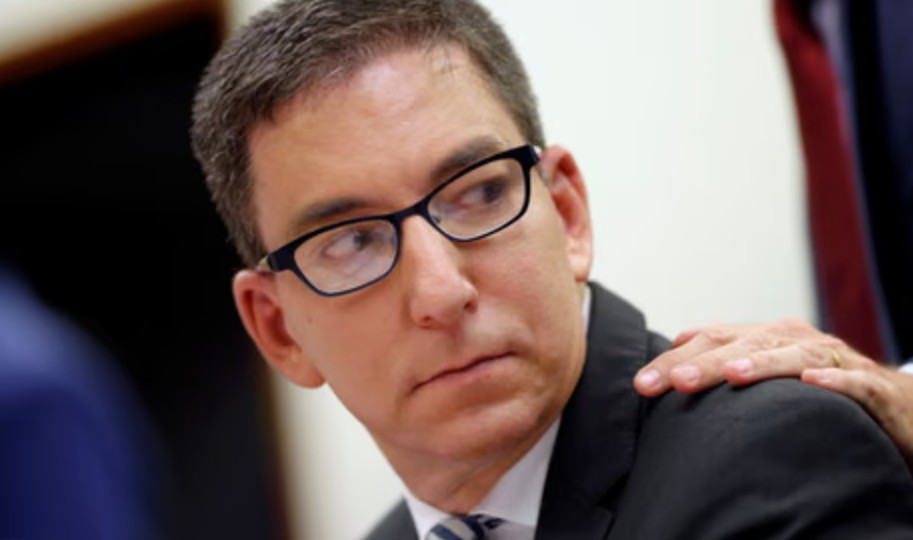Glenn Greenwald Video Fuels Debate on His Actions
In political journalism, few figures generate as much debate as Glenn Greenwald. Celebrated for groundbreaking investigations and unflinching commentary, he has built a reputation for questioning mainstream narratives. Yet a recent viral clip has pushed him back into the spotlight not for the content of his argument, but for how he delivered it.

Contents
The Video That Sparked Buzz
The footage, taken from a livestreamed political panel, shows Greenwald passionately condemning what he calls a “corrupt collaboration” between major newsrooms and intelligence agencies. His voice crescendos, his gestures grow sharper, and at one point he slams the table to punctuate his remarks.
Shocking Video of Glenn Greenwald Sparks a Firestorm on Social Media
Shared widely on X (formerly Twitter), TikTok, and YouTube, the clip spread less for its substance than for its theatrical tone. Critics labeled the moment “melodramatic” and “performance art,” while memes remixed his speech with soundtracks or placed him in spoof debate scenes. Supporters, meanwhile, praised his intensity as proof of conviction.
Who Is Glenn Greenwald?
Glenn Greenwald is an American journalist, author, and former constitutional lawyer widely recognized for his groundbreaking work with whistleblower Edward Snowden in 2013. His reporting on the NSA’s global surveillance operations earned him the Pulitzer Prize for Public Service and established him as a leading voice in investigative journalism.

In 2014, Greenwald co-founded The Intercept, a publication created to support fearless reporting on national security and civil liberties. He departed in 2020, citing disputes over editorial independence, and has since devoted himself to independent journalism. Much of his work now appears on platforms like Substack, and he is a frequent guest on podcasts, webcasts, and television programs.
Greenwald is known for his willingness to challenge both major U.S. political parties, an approach that has won him loyal supporters as well as sharp critics. His public persona is defined by an unflinching, confrontational style: he embraces heated debates, questions entrenched narratives, and rarely avoids controversial issues. Admirers view this as principled and fearless, while detractors argue that it veers into sensationalism.
Public Perception: Ridiculous or Righteous?
Reactions to the video split sharply along political and cultural lines. Detractors dismissed it as lố bịch a Vietnamese term meaning “ridiculous” or “absurd.” They argued that Greenwald’s emphatic gestures and table-slamming eclipsed his message, transforming what might have been a forceful critique into a spectacle. For some, the theatrics undermined his credibility, making him appear more provocateur than journalist.
One viewer wrote on X, “I respected Glenn Greenwald’s reporting for years. Now he looks like a parody of himself.” Others accused him of leaning on dramatics to obscure weak arguments, suggesting the display was more about chasing clicks than fostering serious debate.
Supporters countered that the backlash was politically driven and unfair. “So when a journalist raises their voice, they’re ‘unhinged,’ but when politicians lie calmly, they’re ‘credible’?” one post asked. Admirers framed Greenwald’s impassioned tone as a reflection of genuine anger over systemic corruption a strength rather than a flaw.
The dispute taps into a broader cultural tension: where should the line be drawn between authentic advocacy and performative outrage, and who decides?
Media and Influencer Reactions
Mainstream outlets offered mixed coverage. Some ignored the clip altogether, while others cast it as another sign that Greenwald is drifting from traditional journalistic decorum. The Daily Beast ran a headline suggesting a fall from grace: “From Pulitzer to Punchline? Glenn Greenwald’s Wild Rant Goes Viral.”

Commentators on social platforms joined in. Conservative voices praised him for “calling out the deep state,” while progressive pundits lampooned the moment as self-indulgent political theater.
YouTubers uploaded reaction videos dissecting the speech, and late-night comedy hosts poked fun at its dramatic flair. Memes proliferated, including one viral image placing Greenwald mid-speech onto a Shakespearean stage under the caption: “Alas, poor democracy!”
Greenwald’s Response
Never one to retreat from controversy, Greenwald addressed the uproar in posts on Substack and social media. In a follow-up video, he argued that the criticism validated his point: “People aren’t saying I’m wrong they’re saying I’m too loud.”
He maintained that, in an era of public indifference and media complicity, raising one’s voice is not only acceptable but necessary. “If tone bothers you more than what I’m exposing,” he wrote, “you’re missing the forest for the trees.”
Greenwald also criticized what he described as “elite liberal gatekeepers,” accusing them of valuing civility over truth. He argued that such “tone policing” stifles dissent and sidelines independent journalists who challenge powerful institutions.
Impact on His Image and Career
In the short term, the viral clip has sharpened the divide over Glenn Greenwald’s place in modern journalism. To some, it marks a clear turn from sober reporting toward performance, evidence that he is becoming more personality than press. To others, it serves as a rallying cry, cementing his standing as a relentless truth-teller unafraid of ruffling feathers.
His following on independent platforms has grown since the uproar, suggesting that the spectacle may have expanded his reach. Yet critics warn that visibility built on theatrics risks eroding the credibility that once defined his work.
The episode joins a string of public clashes hinting at a gradual shift away from traditional investigative reporting toward a more combative media-commentator role. Whether that evolution strengthens or undermines his long-term influence remains uncertain.
Broader Implications
The uproar also raises bigger questions about political communication in the digital era. In a media landscape dominated by viral clips, memes, and outrage loops, can urgent messages cut through without heightened drama?
It underscores the increasingly porous boundaries between journalism, activism, and entertainment. As algorithms reward emotional engagement over nuanced debate, even veteran reporters may feel pressure to perform as much as to inform.
Personality now often shapes public discourse as much as or more than the message itself. For better or worse, figures like Greenwald are navigating this space in real time, testing how far political commentary can stretch before substance is eclipsed by spectacle.
Greenwald’s video may be remembered less for its arguments than for their delivery. Whether it stands as a principled denunciation of media complicity or an overblown display of ego depends largely on one’s perspective. What is clear is that Greenwald remains a lightning rod, willing to provoke, challenge, and, at times, entertain.
In an era where substance competes constantly with style, the moment spotlights an enduring dilemma: how to make serious truths resonate in a culture fascinated by how they’re packaged.
Breaking News -Tijana Radonjic Parasailing Fall Full Video Footage
Kaitlyn Flynn Oilers Original Video Leads to Bold Call
Scott Rogers Video Stirs Discussion on Digital Ethics
MSDami Video Sparks Debate on the Dark Side of Virality
Chris Robinson Hurdles Video and Track Incident
Ari Fletcher Video on Twitter and Footage Emerges
Cierra Ortega Racial Video Results in Career Setback
